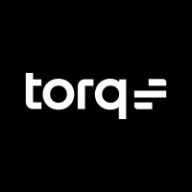


IBM Resilient and Microsoft Sentinel are leaders in incident response and security management. Microsoft Sentinel often has the upper hand due to its native integration within the Microsoft ecosystem, which enhances its performance and holistic threat management.
Features: IBM Resilient offers flexibility and customization with its dynamic playbooks and automation, apt for comprehensive incident management. Microsoft Sentinel excels in AI capabilities, data connectors, and provides a single-pane view that integrates effortlessly with Microsoft products, enhancing real-time threat detection.
Room for Improvement: IBM Resilient needs enhanced integration with third-party tools and a streamlined cost structure for easier initial setup. Microsoft Sentinel's complex pricing model could improve alongside its integration with non-Microsoft products. Both solutions should focus on better support and documentation for easier deployment.
Ease of Deployment and Customer Service: IBM Resilient’s on-premises deployment leads to complex setups, although its technical support is generally responsive. Microsoft Sentinel’s cloud-based architecture allows for quick deployment, but documentation and support responsiveness need improvement.
Pricing and ROI: IBM Resilient’s high pricing model can negatively impact ROI, with costs accumulating based on users and additional platform fees. Microsoft Sentinel’s consumption-based pricing could become expensive with high data ingestion, yet it typically offers better ROI due to absence of on-premises maintenance costs and efficient cloud-based features.
| Product | Market Share (%) |
|---|---|
| Microsoft Sentinel | 12.4% |
| Torq | 4.5% |
| IBM Resilient | 2.1% |
| Other | 81.0% |



| Company Size | Count |
|---|---|
| Midsize Enterprise | 3 |
| Large Enterprise | 4 |
| Company Size | Count |
|---|---|
| Small Business | 9 |
| Midsize Enterprise | 2 |
| Large Enterprise | 7 |
| Company Size | Count |
|---|---|
| Small Business | 38 |
| Midsize Enterprise | 22 |
| Large Enterprise | 45 |
Torq is the enterprise AI SOC solution that effectively combines adaptive insights and automation to handle critical threats efficiently. It manages threat lifecycles, swiftly moving from triage to response, ensuring effective risk management.
Torq is designed to streamline security operations by aggregating telemetry across your security stack. It investigates significant risks and manages threats from triage to containment and remediation. This AI-driven tool enhances the capabilities of your SecOps team, allowing them to achieve more impactful results without introducing complicated processes.
What are the key features of Torq?In industries like finance and healthcare, Torq shows effectiveness by adapting to specific risk scenarios often encountered in these fields. Its integration with existing infrastructures makes it a valuable asset for maintaining stringent security standards, essential for protecting critical data and operations in diverse high-stakes environments.
The Resilient Incident Response Platform (IRP) is the leading platform for orchestrating and automating incident response processes.
The Resilient IRP quickly and easily integrates with your organization’s existing security and IT investments. It makes security alerts instantly actionable, provides valuable intelligence and incident context, and enables adaptive response to complex cyber threats.
Microsoft Sentinel is a scalable, cloud-native, security information event management (SIEM) and security orchestration automated response (SOAR) solution that lets you see and stop threats before they cause harm. Microsoft Sentinel delivers intelligent security analytics and threat intelligence across the enterprise, providing a single solution for alert detection, threat visibility, proactive hunting, and threat response. Eliminate security infrastructure setup and maintenance, and elastically scale to meet your security needs—while reducing IT costs. With Microsoft Sentinel, you can:
- Collect data at cloud scale—across all users, devices, applications, and infrastructure, both on-premises and in multiple clouds
- Detect previously uncovered threats and minimize false positives using analytics and unparalleled threat intelligence from Microsoft
- Investigate threats with AI and hunt suspicious activities at scale, tapping into decades of cybersecurity work at Microsoft
- Respond to incidents rapidly with built-in orchestration and automation of common tasks
To learn more about our solution, ask questions, and share feedback, join our Microsoft Security, Compliance and Identity Community.
We monitor all Security Orchestration Automation and Response (SOAR) reviews to prevent fraudulent reviews and keep review quality high. We do not post reviews by company employees or direct competitors. We validate each review for authenticity via cross-reference with LinkedIn, and personal follow-up with the reviewer when necessary.